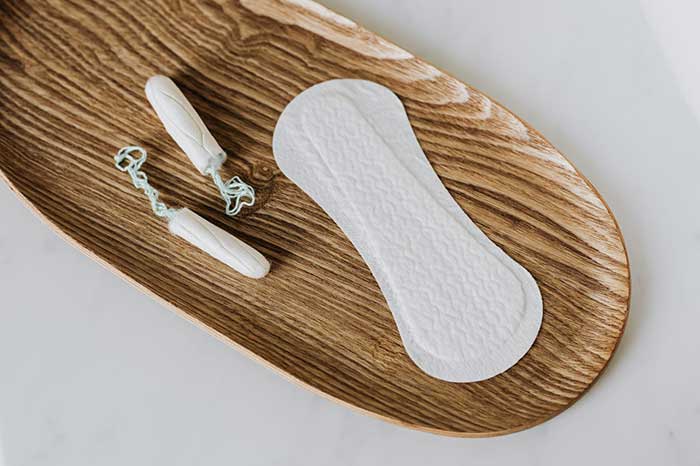
Receiving the news that your six-year-old has started menstruating can be shocking and overwhelming as a parent.
You’ll likely be filled with questions and concerns about what this means for your child’s health, well-being, and future.
The term for this is called precocious puberty.
A child may have an adult body, but she is still a child in her head.
This highlights a critical issue affecting many young girls who experience early puberty.
Despite their physical development, they remain emotionally and cognitively immature, lacking the capacity to understand and nurture the changes happening to their bodies entirely.
Children who experience early puberty are still developing emotionally and cognitively.
They may struggle to comprehend the physical and emotional changes they’re experiencing, leading to feelings of confusion, anxiety, and fear.
Also, young girls may not have the emotional regulation skills to manage the intense emotions that come with puberty. This can lead to mood swings, irritability, and difficulty coping with stress.
Moreover, children with adult bodies may be more vulnerable to exploitation, abuse, or manipulation by others who may not recognise their emotional immaturity.
This can have severe and long-lasting consequences for their physical and emotional well-being.
The disconnect between physical and emotional development can lead to negative body image, low self-esteem, and self-consciousness.
Young girls may feel like they’re losing control of their bodies and struggle to develop a positive sense of self.
Early puberty has been linked to various long-term health consequences, including an increased risk of breast cancer, ovarian cancer, and cardiovascular disease.
It’s essential to address the emotional and psychological aspects of early puberty to mitigate these risks.
Children who experience early puberty require comprehensive support and education to help them through this challenge.
Understanding Precocious Puberty
The American Academy of Pediatrics reports that the average age of puberty has been declining steadily since the early 20th century.
What was once considered a typical age of 16 or 17 for a girl’s first period has dropped to around 12.
Furthermore, research indicates that approximately 10 to 15 percent of girls enter puberty at age seven or younger, a phenomenon known as precocious puberty.
Several theories attempt to explain why puberty starts earlier.
While none have been proven, potential factors include:
Better Health And Nutrition
Improved living standards and access to nutritious food may contribute to earlier puberty.
Environmental Chemicals
Exposure to chemicals that mimic environmental hormones is another possible cause.
Growth hormone in meat
Some experts suggest that beef injected with growth hormone may play a role.
Childhood obesity: The rise in childhood obesity is also cited as a potential factor.
What To Do If Your Child Starts Menstruating Early
If your six-year-old has started menstruating, it’s essential to:
1. Stay calm: Try not to panic or react in a way that might alarm your child. Be in control of the situation
2. Consult a doctor: Schedule an appointment with your family’s doctor to discuss your daughter’s physical and emotional development.
3. As the parent, focus on emotional support: Provide reassurance and guidance to help your child navigate this significant change because your child will be emotionally disturbed by the shift experienced in her body.
4. Educate your child: Use simple, age-appropriate language to explain what’s happening and how to manage their periods.
5. Monitor their health: Monitor your child’s menstrual cycle, overall health, and any potential symptoms or concerns.
Supporting Your Child’s Emotional Well-being
Early menstruation can be emotionally challenging for young girls.
They may feel scared, embarrassed, or overwhelmed by this significant change.
As a parent or caregiver, it’s essential to provide emotional support and guidance to help them navigate this experience.
Listen and Validate Their Feelings
It is crucial to create a safe and non-judgmental space for your child to express their emotions. When they open up to you:
1. Give them your undivided attention: Make eye contact, remove distractions, and show that you’re fully present.
2. Use empathetic language: Reflect their feelings by saying, “I can see that you’re feeling scared” or “I understand that this is overwhelming for you.”
3. Avoid minimizing their concerns: Do not say things like “It’s not a big deal” or “You’ll get used to it.” Instead, acknowledge their feelings and offer reassurance.
4. Validate their emotions: Let your child know their feelings are normal and valid. You can say, “It’s okay to feel scared or worried. Many girls feel that way when they start their period.”
Encourage Open Communication
Engaging in a positive and supportive relationship with your child is vital for encouraging open communication between you:
1. Use simple language: Explain what’s happening in a way your child can understand, considering the age.
2. Be approachable and available: Let your child know they can come to you with questions or concerns anytime.
3. Create opportunities for conversation: Use everyday situations, like bath time or bedtime, to talk to your child about their feelings and experiences.
4. Be patient and understanding: Recognize that your child may need time to process their emotions and accept this significant change.
Also Read: Do These If Your Daughter Hits Puberty Early
Help Them Develop Coping Strategies
Teaching your child techniques to manage their emotions can help them feel more in control:
1. Deep breathing exercises: Encourage your child to take slow, deep breaths through their nose and out through their mouth.
2. Journaling: Suggest that your child write down their thoughts and feelings to process and release their emotions.
3. Physical activity: Engage your child in physical activities, like walking, dancing, or yoga, to help them manage stress and anxiety.
4. Talking to a trusted friend or family member: Encourage your child to talk to someone they trust about their feelings and experiences.
In summary, while early menstruation can be unexpected and overwhelming, remaining calm, supportive, and informed about it is essential.
By working closely with your family’s doctor, providing emotional support for your daughter, and educating your child, you can help them journey through this milestone and ensure their physical and emotional well-being.
Find more resources on parenting here.



